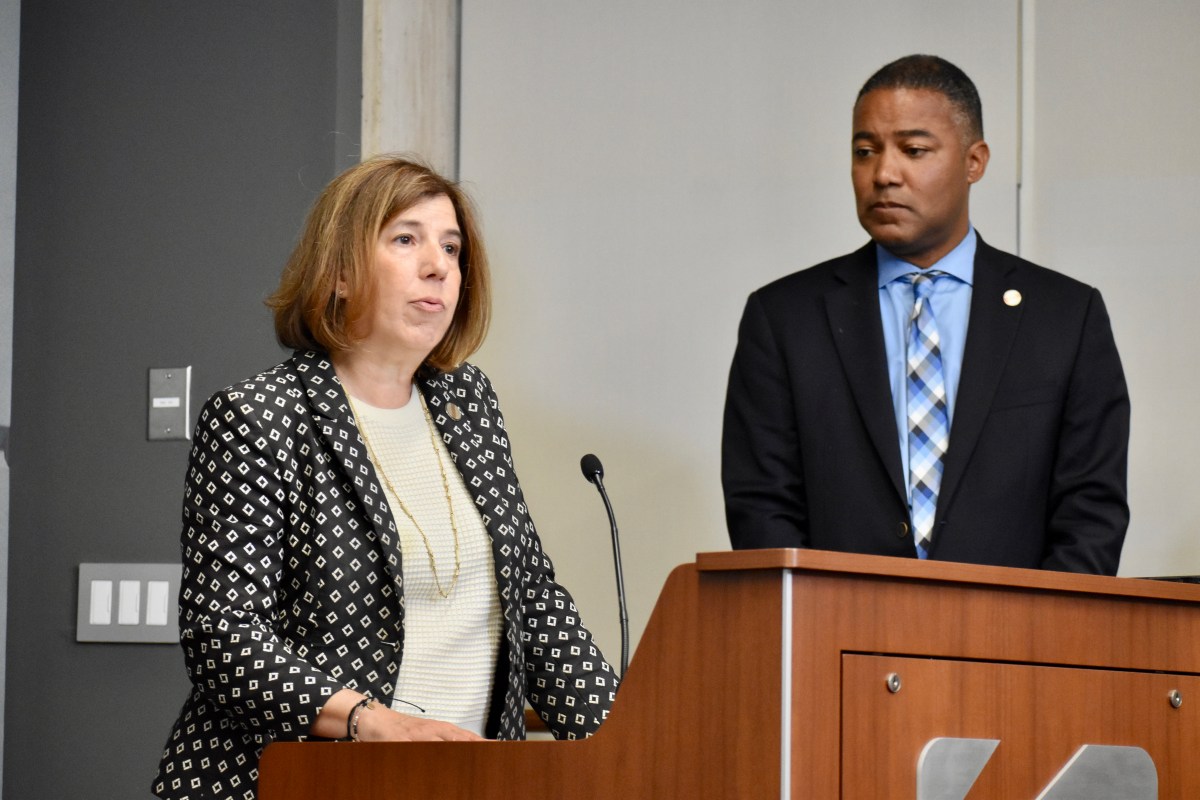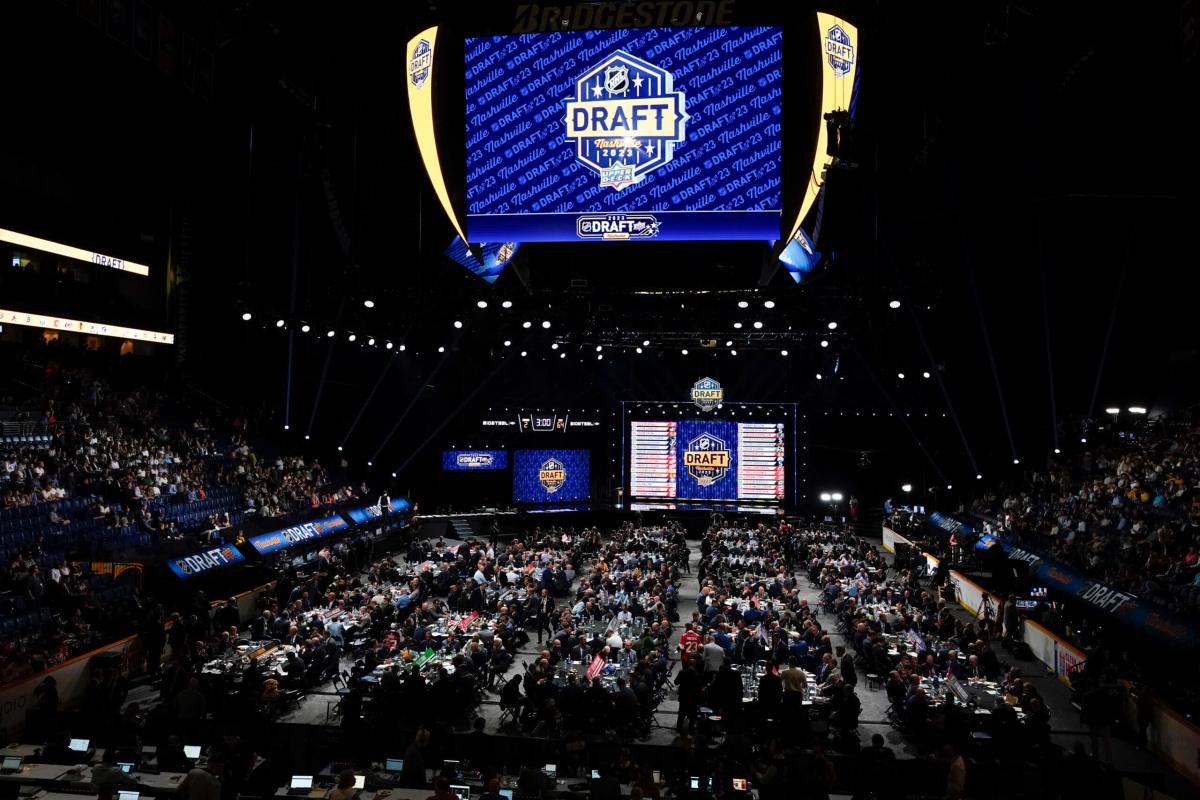VENICE, Italy (AP) — Chinese dissident and artist Ai Weiwei warns against hubris in what he calls “such a troublesome time” with his first glass sculpture, made on the Venetian island of Murano, with the foreboding subtitle: “Memento Mori,” Latin for “Remember You Must Die.”
Russian bombs fall on Ukraine. China is flexing its military muscle in the Taiwan Strait. Migrants die repeatedly at sea as smugglers’ boats sink. The Earth warms, creating drought, collapsing glaciers and triggering violent storms. The pandemic lingers.
“We are talking about many, many things. We are talking about immigrants, about deaths, about the war, about many, many issues,″ Ai told The Associated Press in Venice on Friday.
He stands by his 9-meter (29.5-foot), nearly 3-ton black glass sculpture, which is suspended over the central nave of the deconsecrated church of San Giorgio Maggiore, located opposite Venice’s St. Mark’s Square. Titled “The Human Comedy: Memento Mori,” the sculpture is the centerpiece of an Ai exhibit at the church that opens Sunday.
The huge hanging artwork is part chandelier, part ossuary, with intricately hung molded glass skeletons and skulls, both human and animal, balanced with glass-blown human organs and scattered likenesses of the Twitter bird logo and surveillance cameras, hinting at the darker side of technology.
“We see the environment completely disappearing, being destroyed by humans’ effort … and that will create a much bigger disaster or famine. Or war, there’s a possible political struggle between China and the West″ as China asserts greater control over Hong Kong and threatens control over Taiwan, Ai said.
“We have to rethink about humans and legitimacy in the environment. Do we really deserve this planet, or are we just being so short-sighted and racist? And very, very just self-demanding, selfishness,″ the artist added.
The exhibit also features smaller glass sculptures. One depicts Ai himself as a prisoner, a reference to his months in a Chinese prison in 2011. Another imposes his distorted face on a replica of an 18th-century statue titled “Allegory of Envy.″ A wooden sculpture of a tree trunk fills a sacristy. Colored glass hard hats save places in the choir. Lego-brick portrait replicas of famous paintings and the Chinese zodiac line the walls of adjacent rooms.
Ai said he thinks Russia’s invasion of Ukraine gave Chinese authorities a “potential model” to understand how such an operation might play out in Taiwan, without serving either as encouragement or warning.
“I think China is part of the global power struggle that reflects our modern understanding and the classic notion about territory and who has the right to do what,” he said. ”What what happens in the Russian and Ukraine conflict gives China a clear maybe mental exercise about what they want to do in Taiwan, if it is needed.”
But the artist says any Chinese invasion of Taiwan would be a mistake and a misunderstanding of Taiwan’s history.
“The Chinese think that Taiwan belongs to China, but in reality China and Taiwan have been apart for over 70 years. They have their own social structure, which is more democratic and more peaceful than in China,″ he said. Any moves by China to claim Taiwan by force will result “in the ultimate struggle.″
He sees the struggle in China as one for legitimacy of authorities’ control, while the challenge in the West is the continual need to defend democracy and with it freedom of speech. The West’s Achille’s heel is its economic dependency on China’s cheap manufacturing, he said.
“That is why China is so confident,″ Ai said. ”They know the West cannot live without China.”
He cited instances of Western hypocrisy, including the rejection by festivals in Europe and the United States of films he made during the pandemic depicting Wuhan’s first lockdown and the struggles in Hong Kong.
After praising the films, festivals ultimately give “the last words, we cannot show it,″ out of fear of losing access to the Chinese market, Ai said.
His artworks travel more smoothly, he said, because his artistic language is harder to interpret.
“My work is about a new vocabulary, so it is difficult for somebody who has completely no knowledge. It requires study,” Ai said. ”I don’t make some piece to please the audience. But I always want to say something that is necessary.”
Tourists wandering in from the water bus were delighted that they had stumbled into an exhibit by the renowned dissident artist.
“It is metal? When I first saw this I thought it represented hell,″ Kenneth Cheung, a Hong Kong native now living in Toronto, Canada, said as he checked out the imposing glass sculpture. “Being in a church, it is even stronger, more powerful.”
The main sculpture took three years to realize with assistance from artists at a glass studio on Murano employing three techniques: traditional Murano blown glass, wax molds and injection molds. Studio owner Adriano Berengo said he pursued Ai for years to secure a collaboration with an artist he admires for his strong political beliefs.
“He shows his face. He doesn’t hide. He is ready to risk his life, and he did in China,″ Berengo said.
The exhibit runs through Nov. 27 in Venice. From there, the hanging sculpture will go to the Design Museum in London and then, hopefully a buyer, Berengo said.
“It has to be a big museum. Otherwise, how can you keep an artwork like that?” he said.





















